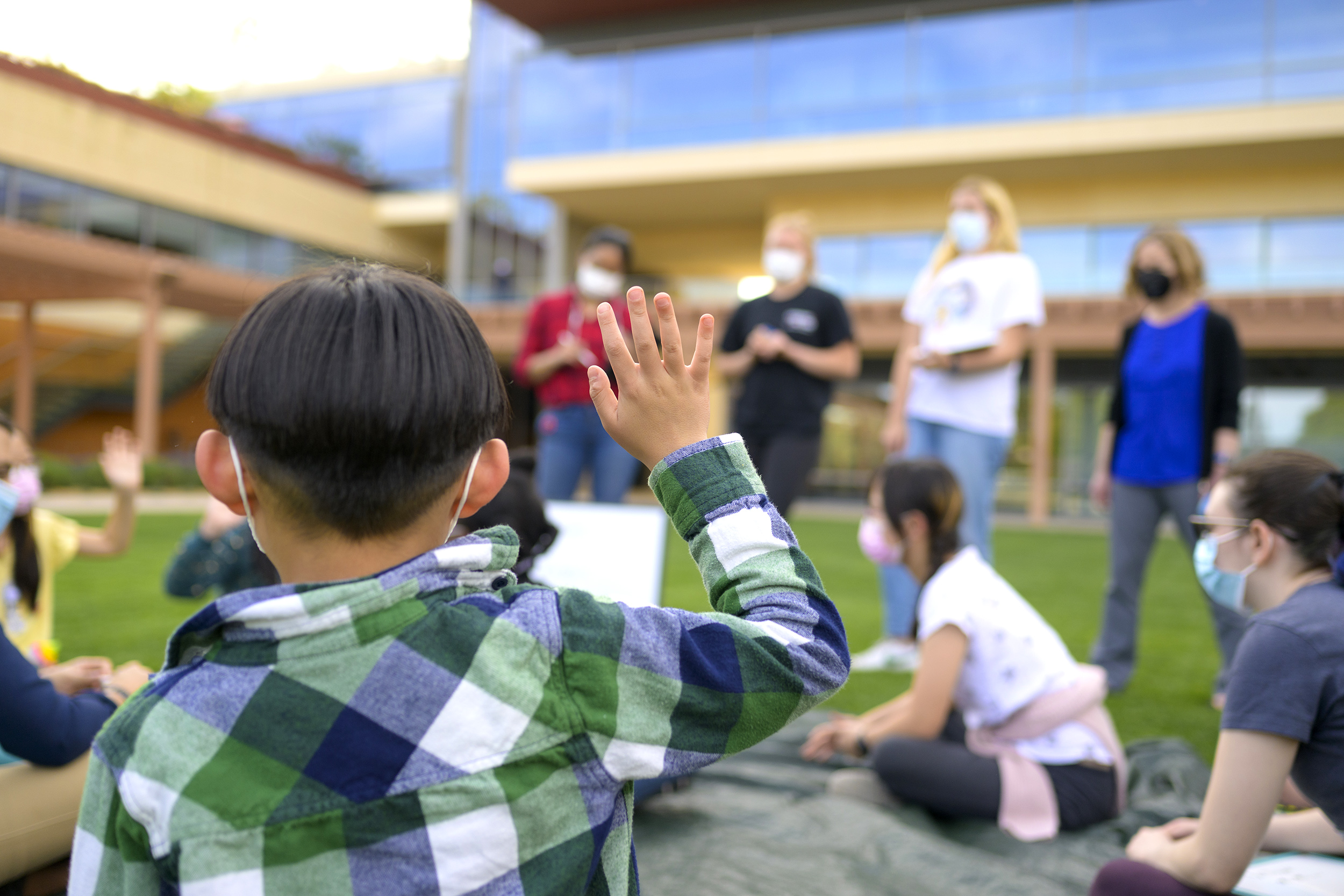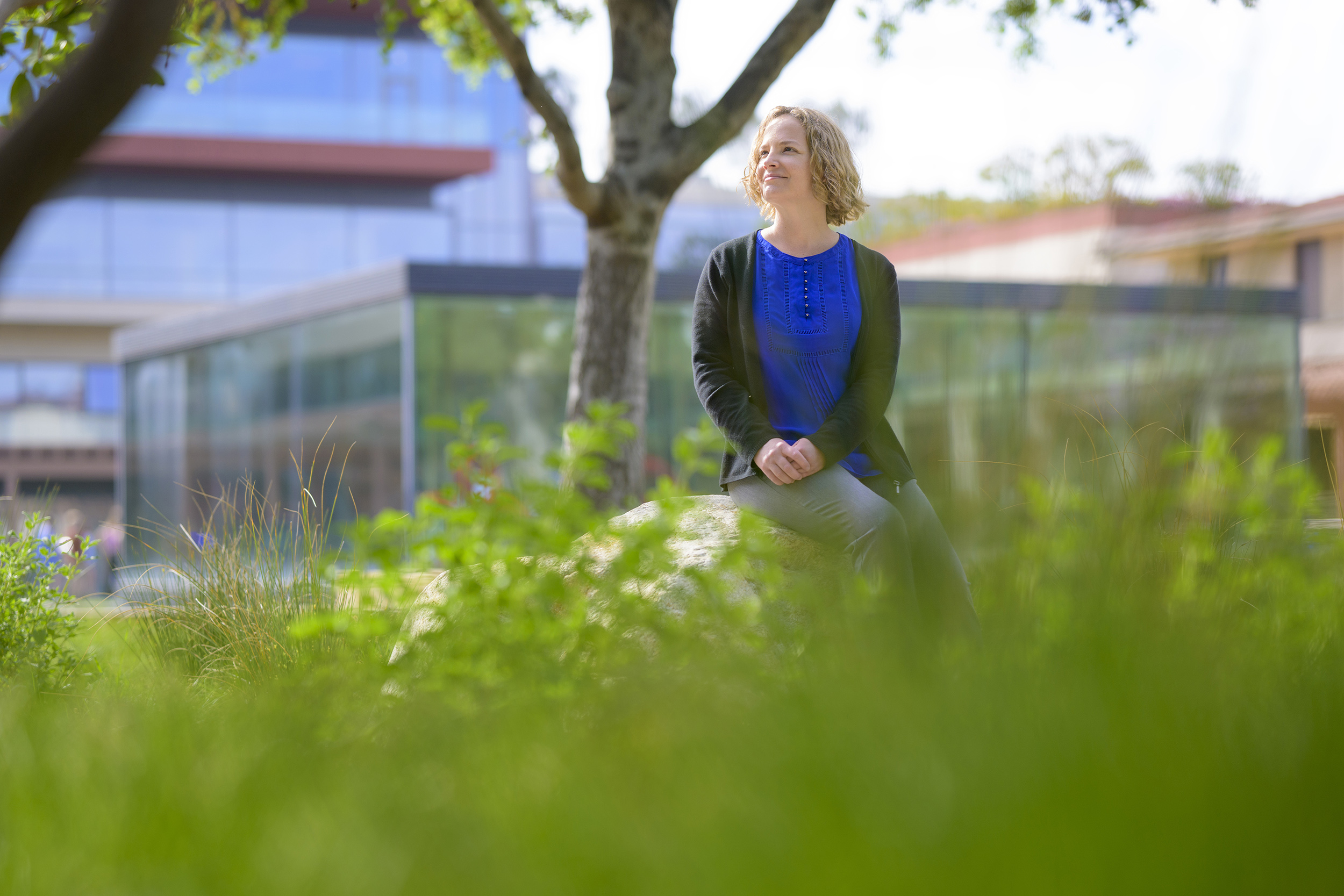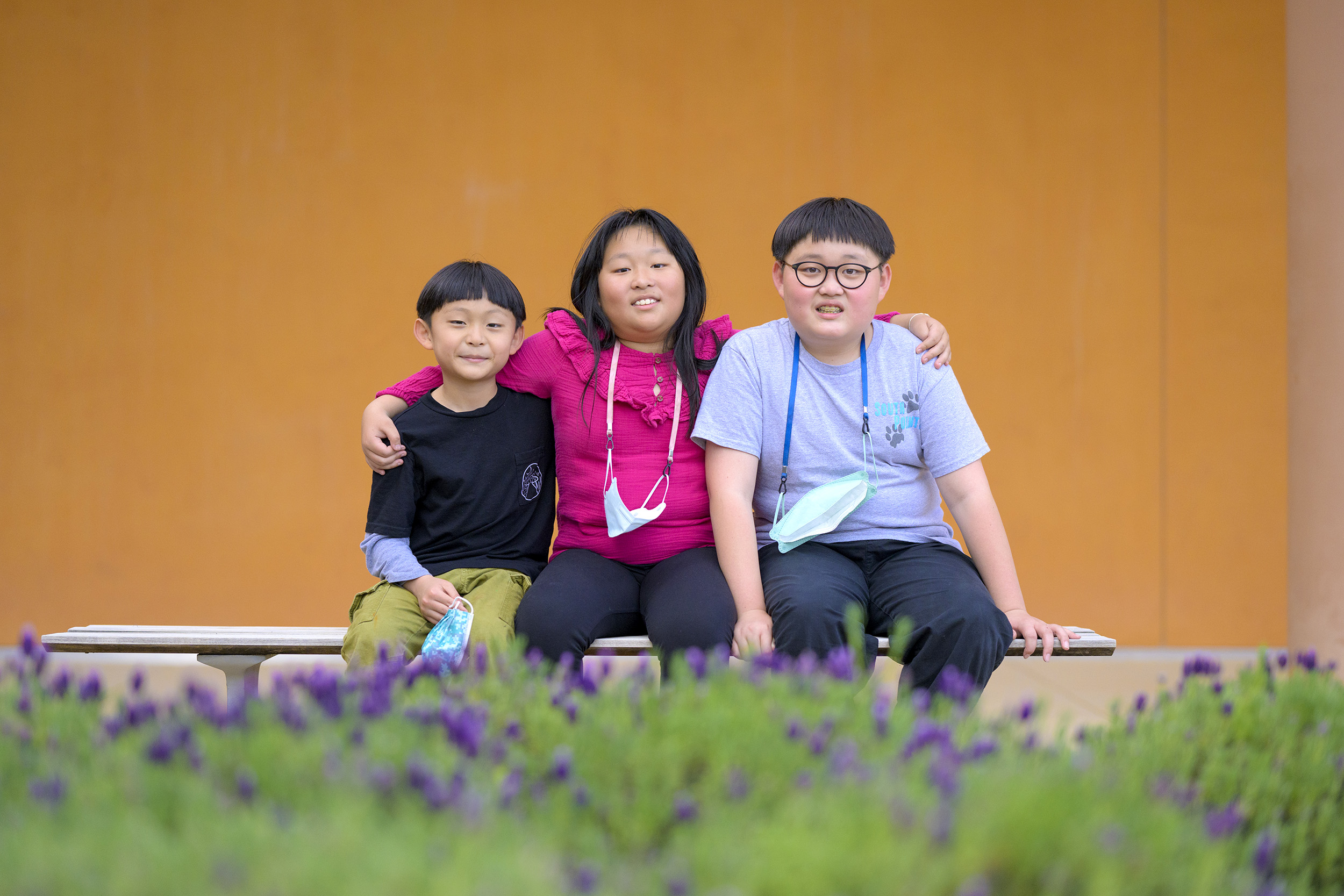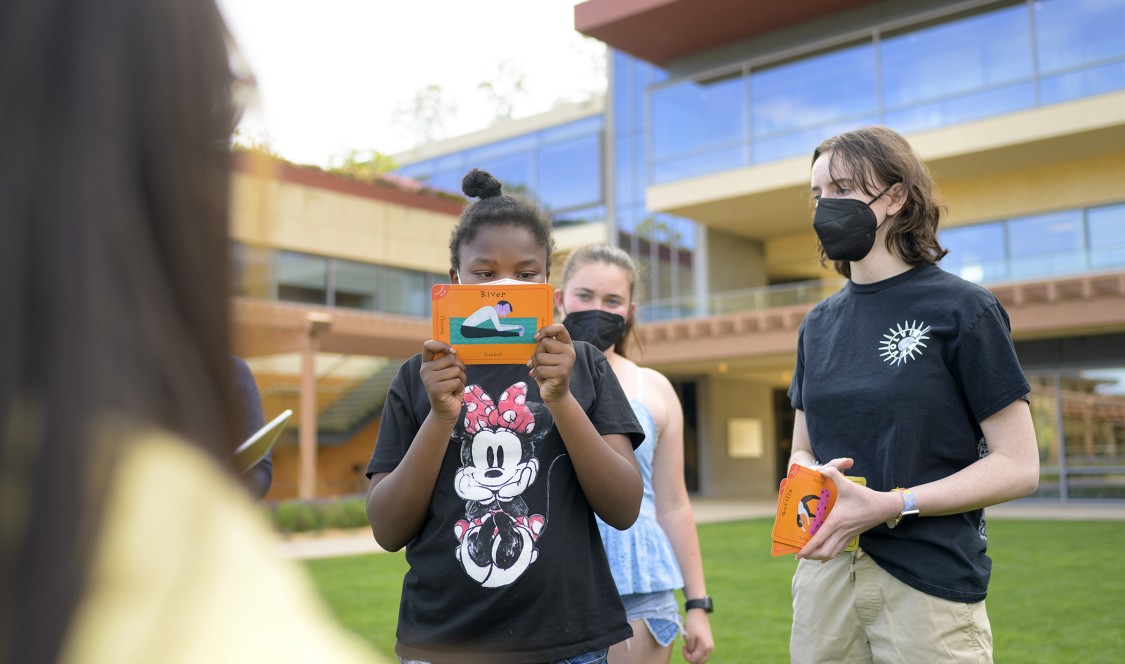Professor Rachel Fenning, the new director of the Claremont Autism Center, home of the Leon Strauss Autism Clinic at CMC, has always felt called to a service-oriented profession. That calling was sharpened while taking a course in developmental psychology in her first semester in college.

Participants at the Autism Clinic get together for a group activity on Gann Quadrangle.
“I was especially intrigued by processes related to risk and resilience, and the unfolding of individual differences,” said Fenning, who was named director of the Autism Center in the fall.
These interests led her to complete a class and clinical practicum focused on autism, a course similar to the one she now teaches as director of the Autism Center. Through this immersive classroom and field experience, Fenning discovered the passions that she continues to pursue today. She hopes to similarly inspire her own students.
“The Center’s focus on providing exceptional training opportunities at the undergraduate level is rare among autism research and clinical service programs,” Fenning said. “I am honored to carry forward this impressive legacy.”
Fenning joined CMC’s Department of Psychological Science in July 2022 after serving as the co-founder and co-director of the Center for Autism at Cal State Fullerton. She also serves as the president-elect of the American Psychological Association’s Division 33: Intellectual and Developmental Disabilities/autism spectrum disorder (ASD), and the co-chair of a task force focused on developing guidelines for professional practice in ASD.
The multifaceted position as faculty member and director of the Autism Clinic drew Fenning to CMC, where she has been able to seamlessly integrate her passions for teaching, research, and clinical service.
“It is incredible to get to do the things I love every day and to have these diverse facets of expertise valued by the college,” Fenning said.
The post has also offered Fenning, the daughter of CMC alumnus Alan Fenning ’72, an opportunity to work at an institution that is meaningful to her and her family.
“My father remains actively involved with CMC and he was beyond excited when I joined the community,” Fenning said. “For years, I learned of CMC through stories of his transformative college experiences, and especially of his enduring friendship with his CMC mentor, John Roth. John reached out to me upon learning of my position, which was so kind. To have this come full circle in a way has been very special.”

In her first year as director, Fenning has focused on providing a continuity of service and support to existing students and clients, while offering new programs and learning opportunities based on her work. Fenning is engaged in several ongoing research studies focused on improving health outcomes for individuals with ASD and their families. Among them, Fenning and collaborators recently completed a multi-site clinical trial involving the development and testing of interventions to improve dental care and dental health for children with ASD and significant unmet dental needs. Fenning and fellow researchers have also just concluded a clinical trial of stress-reduction interventions for underserved parents of preschoolers with ASD. Preliminary results suggest significant improvements in parent wellbeing and positive effects on children’s functioning.
Fenning looks forward to integrating her research into current activities at the Autism Center to leverage what she and her collaborators have learned regarding risk and resilience factors to improve and personalize interventions to better support children and their families. She is also excited about initiating additional clinical services designed to enhance student training in best-practice methods while meeting community needs. One way she is doing this is by working with local agencies to launch an assessment service that will focus on providing diagnostic evaluations for ASD and related neurodevelopmental conditions.
“Evaluation waitlists are exceedingly long, especially for minoritized communities, which compounds health disparities,” Fenning said. “Our program will help promote much-needed access to services and supports while furthering student training in evidence-based practice.”

A family of participants sit together on a bench after a group activity.
Fenning is also in the process of expanding the Autism Center’s clinical services to support families of children with ASD and co-occurring mental health difficulties.
“Considering avenues for augmenting support to enhance wellbeing for children who less often benefit from existing approaches will be a core emphasis going forward,” Fenning said.
Fenning continues the Autism Center’s legacy of engaging CMC students in experiential learning. In addition to the practicum offered during the academic year, several students will engage in research projects this summer focused on parent-child interaction and the development of emotion regulation in children with ASD. The Autism Center was also recently equipped with a new observation lab that enables Fenning and her students to capture and synchronize video footage with psychophysiological data to enhance clinical teaching and research opportunities.
While expanding the reach of Autism Center clinical services at the local and regional level, Center research is nationally and internationally known. Fenning also hopes the Autism Center can serve as a source of support for those within the community of the Claremont Colleges as well.
“I am eager to learn what programs, resources, and supports might be of interest, and the role the Center can play in supporting campus efforts to cultivate belonging and inclusivity for all our members, including those who identify as neurodivergent,” Fenning said. “I very much look forward to the prospect of future teaching, research, and service collaborations.”

